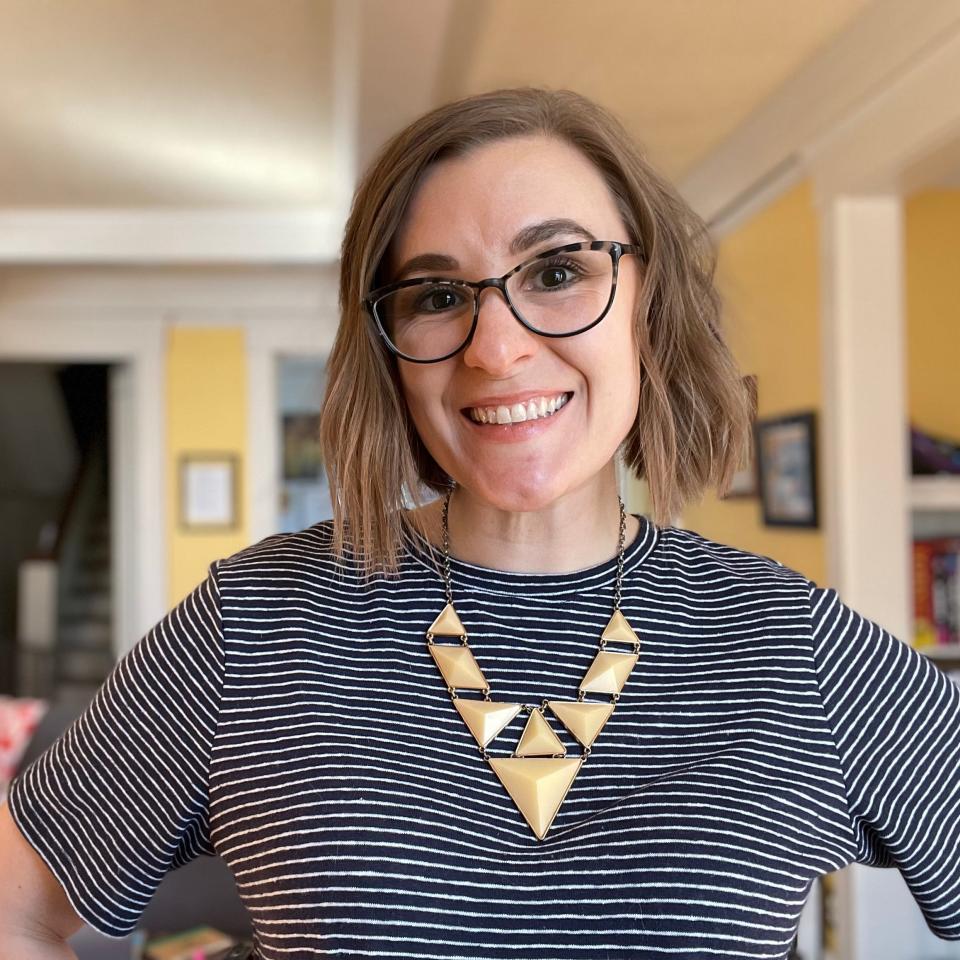Tornado direct hit on Des Moines metro underscores the need to act on climate
I have spent years working on the front lines to combat the climate crisis, but it arrived at my front door last week. It came fast and in a fury. And for someone who didn’t grow up in the Midwest, I had my closest encounter with a tornado in July. When the screeching alert came on my phone, I quickly grabbed my two dogs and headed to the basement.
I live in the Merle Hay neighborhood in Des Moines and I love it. Trees who have lived long lives line our streets providing shade as our weather steadily gets hotter. My neighbors are friendly and we walk our corgi in the Glendale Cemetery nearly daily. We have our route and I have my favorite stretches where trees line the road on both sides. I never thought that a cemetery would be a place I’d look forward to walking, yet it’s become one of the spots in Des Moines that feels like it belongs to us, and I know that rings true to my countless neighbors.
On Monday, as the alert cleared, I ran upstairs to check on our home and see if we sustained any damage. We luckily had none. Neighbors were trickling out of their homes to see, a few of us checked in with a family whose tree had hit their home causing roof damage. I started walking the other direction and saw that a block and a half up, there was significantly more damage with trees blocking the road, on power lines, and on homes. I prayed for my neighbors as they stepped up, bringing out chainsaws and helping move branches, answering my prayers.
More: 'We'll get through it': In Des Moines, Urbandale, residents band together after tornado
My spouse and I decided to see how Glendale had fared. And as he later said, “I feel like the Lorax.” Trees had lost their tops, the gazebo by the scattering prairie had been ripped in two and lay in the prairie and on the other side of the street. Majestic trees were uprooted, lying across graves of people’s beloved. We decided to follow the damage and tracked where the tornado had crossed with the juxtaposition of areas where decorated tombstones had not seemed to have been disturbed. It was and will be tragic.
The thing is. It doesn’t need to be like this.
I’m the executive director of Iowa Interfaith Power & Light, where it’s our mission to empower Iowans of faith and conscience to take bold and just action on the climate crisis. Scientists overwhelmingly agree, our storms are becoming worse because of climate change. Every day, I work to invite Iowans into our movement and take climate action so that the risks of weather like Monday, the extreme heat indexes, the floods of a few weeks ago, the tornadoes in the spring, decrease.
The climate crisis is impacting our state, including this direct hit to metro Des Moines. As scary and terrifying as it was and is, we can still do something about it. You can join organizations like mine and start working with your own faith community on what you can collectively do to decrease your carbon emissions, advocate to our state Legislature and federal officials, look into installing solar panels or heat pumps, and share your climate impact stories. The time for action can still be now and there is still room to make the changes needed so that our future generations can avoid increasing extreme weather events that threaten our planet and lives.
We can still act on climate and have a lasting impact, but we must move to action now. I hope you join us at Iowa IPL or any of the other amazing environmental groups doing the work in Iowa. We can make a difference together, just like the hundreds of Iowans did in my neighborhood, across the Des Moines metro, and throughout our state. You are who is needed.

Irene DeMaris is executive director of Iowa Interfaith Power & Light.
This article originally appeared on Des Moines Register: Tornado hitting Des Moines should push us toward climate action

